News
Argentina Proposes VASP Registry as Part of Updated AML Law
Argentina is preparing to update its AML and CTF law and has proposed to include a registry for v...
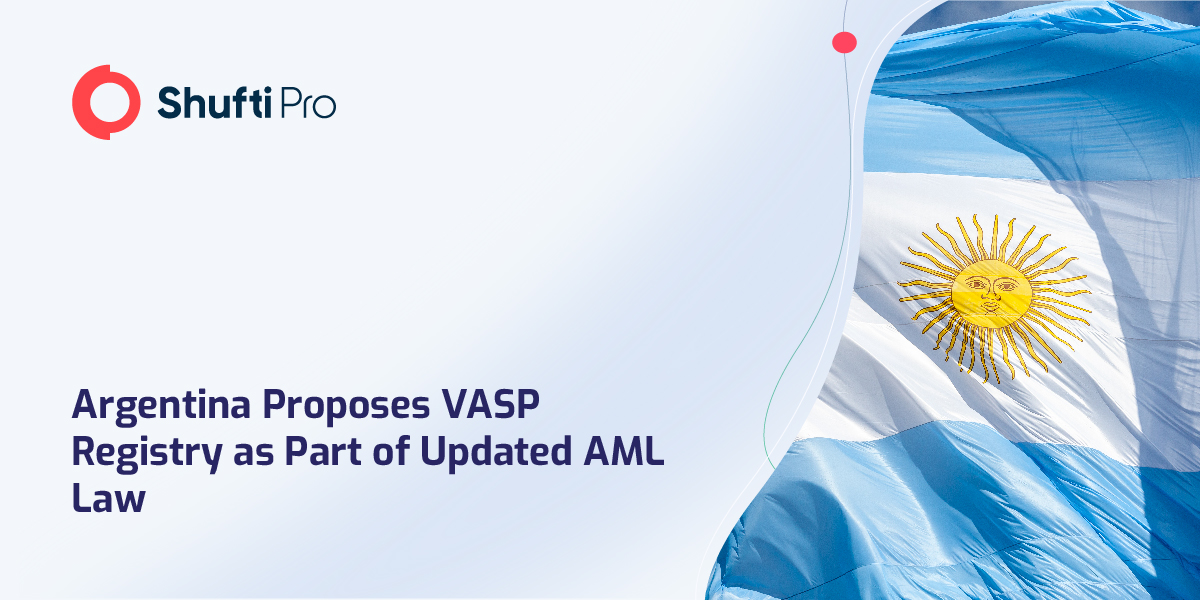 Explore More
Explore More
News
FINRA Issues Guidelines Regarding Penalties for Anti-Money Laundering Violations
FINRA has issued its first-ever guidance to its member broker-dealers about the penalties that wi...
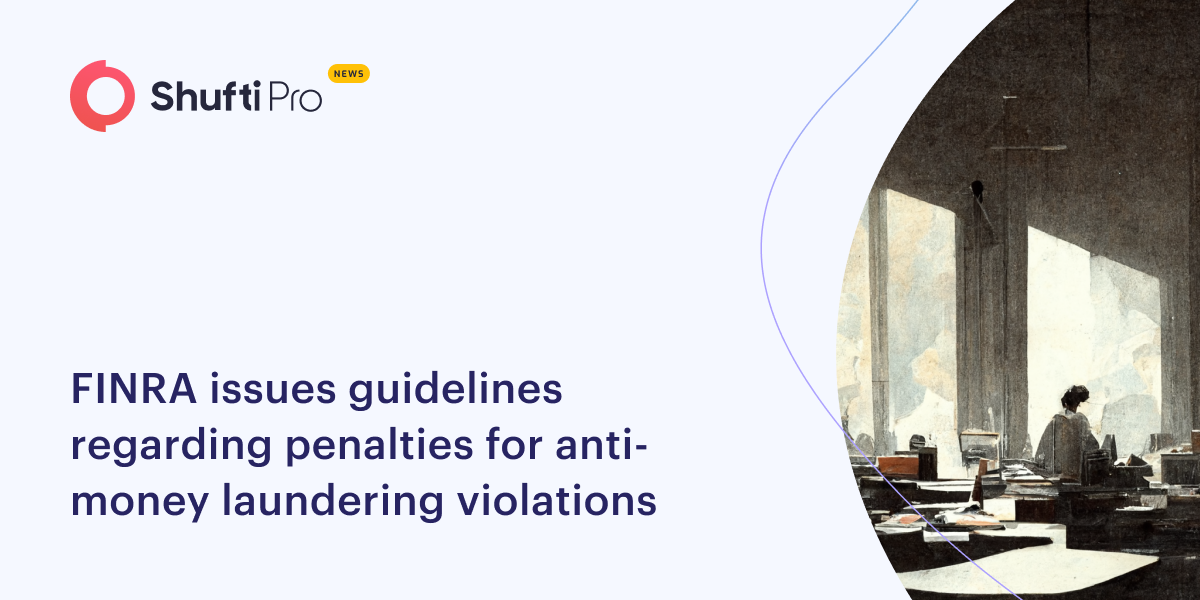 Explore More
Explore More
News
Vietnam Govt to Introduce Crypto Research Group to Evaluate Policy
Vietnam’s Ministry of Finance has plans of establishing a research group with the aim of studying...
 Explore More
Explore More
News
Pandora Papers Update: Offshore Havens and Money Laundering Scandals Exposed
The Pandora Papers expose 35 world leaders, 300 public officials and 100+ billionaires, thus prov...
 Explore More
Explore More
News
China’s Law Enforcement Authorities Issue Warning Against NFTs to Curb Financial Crimes
China’s three major banking regulators have issued a warning against non-fungible tokens (NFTs) w...
 Explore More
Explore More
News
Global Payments Industry At Risk Due to Cryptocurrencies, Says FinTech Boss
According to the boss of New York based investment banking company, Goldman Sachs, Cryptocurrenci...
 Explore More
Explore More
News
Bulgarian Prosecutors Investigate Crypto Lender Nexo for Alleged Illegal Activities
Bulgarian officers have launched an investigation against Nexo as the crypto Lender was involved ...
 Explore More
Explore More
News
FinCEN Implements Stringent KYC Regulations For Digital Wallet
The USA Treasury Department has proposed KYC- Know Your Customer Regulations for the digital asse...
 Explore More
Explore More
News
Norway’s DNB is Facing a Possible Fine of $45M for Poor AML Compliance
Norway’s leading bank, DNB ASA, faces the possibility of a $45 million penalty for its inadequate...
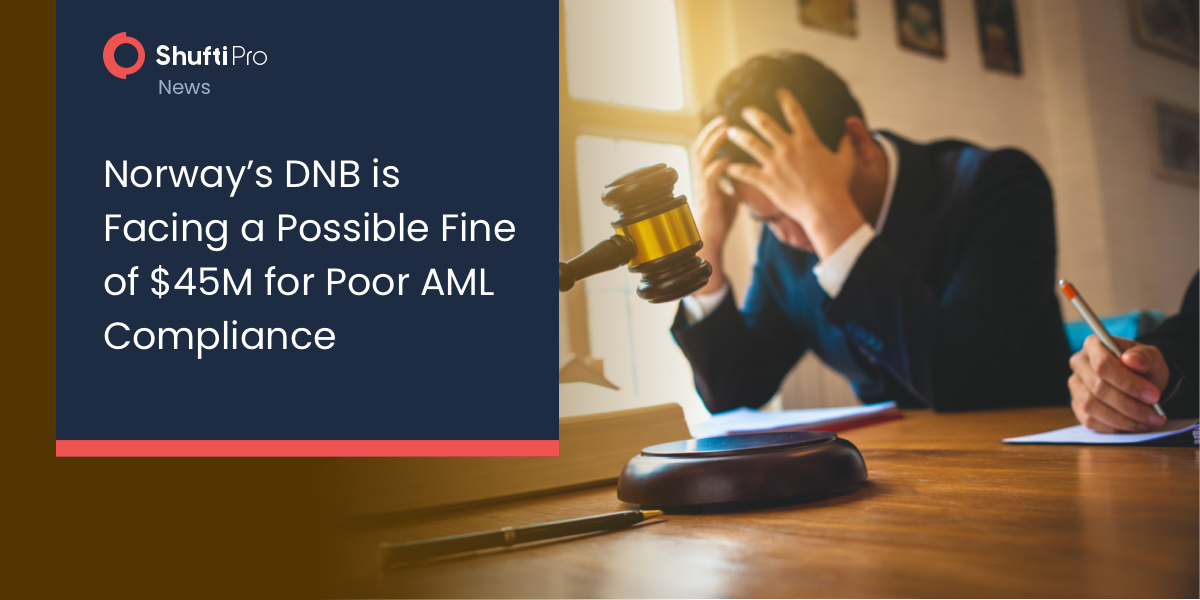 Explore More
Explore More
News
EFCC Enforces Real Estate Agents to Comply with Anti-Money Laundering (AML) Regulations
The Economic and Financial Crimes Commission (EFCC) urges real estate agents to strengthen their ...
 Explore More
Explore More
News
Saudi Arabia Takes New Measures to Tackle Financial Crime
Saudi Authorities have approved a new legislative measure designed to enhance their efforts in fi...
 Explore More
Explore More
News
U.S. Schools and Colleges Witness a Rise in Data Breaches
Data breaches and cyberattacks continue to grow and now targeting the education sector. Amid the ...
 Explore More
Explore More
News
SRA Fines Scarborough Law Firm for Long-term AML Compliance Failures
The Solicitors Regulation Authority (SRA) has fined Scarborough law firm Pinkney Grunwells Lawyer...
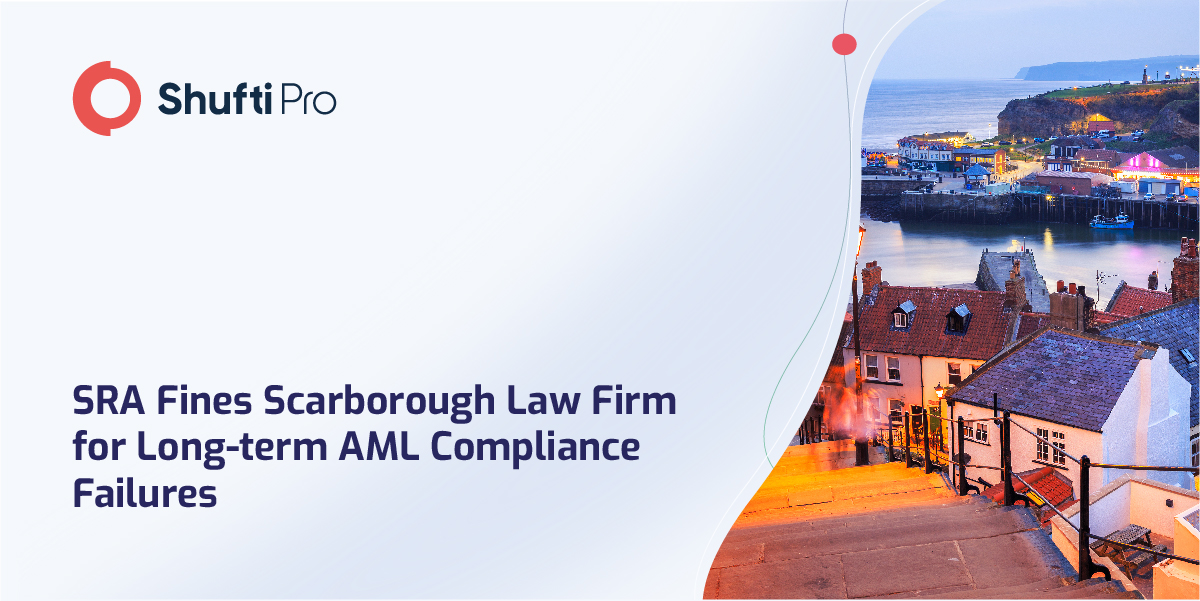 Explore More
Explore More
News
Coronavirus affects challenger banks as app downloads decline
According to Finbold, top challenger banks in the United Kingdom have noticed a sudden decline in...
 Explore More
Explore More
News
Namibia Launches Cyber Security Council to Curb e-Fraud
Namibia has established a cyber security council that would act as a useful forum for discussions...
 Explore More
Explore More
News
US Task Force Seizes Another Superyacht in the Battle Against Russian Oligarchs’ Corruption
A new US task force has partnered with the IRS and global entities to take down Russian oligarchs...
 Explore More
Explore More
News
US Targets More Russian Yachts Linked to Putin as Part of Extended Sanctions
The Treasury Department has expanded its Russian sanctions to target Moscow’s access to yachts as...
 Explore More
Explore More
News
Revised Financial Regulations in South Korea Now Covers Crypto Investors
The financial regulators in South Korea announced that domestic crypto investors would be covered...
 Explore More
Explore More
News
Canada loses millions in online scams
According to CBC News, 6492 incidents of fraud were reported to Edmonton Police last year, result...
 Explore More
Explore More
News
Ukraine Passes Anti-Money Laundering Law based on FATF
The Government of Ukraine has passed the final version of a money laundering law based on the gui...
 Explore More
Explore More
News
FCA Says Bankman-Fried FTX Cryptocurrency Exchange Not Regulated in the UK
FCA warned crypto exchange FTX due to their unauthorized operations. The financial regulator clea...
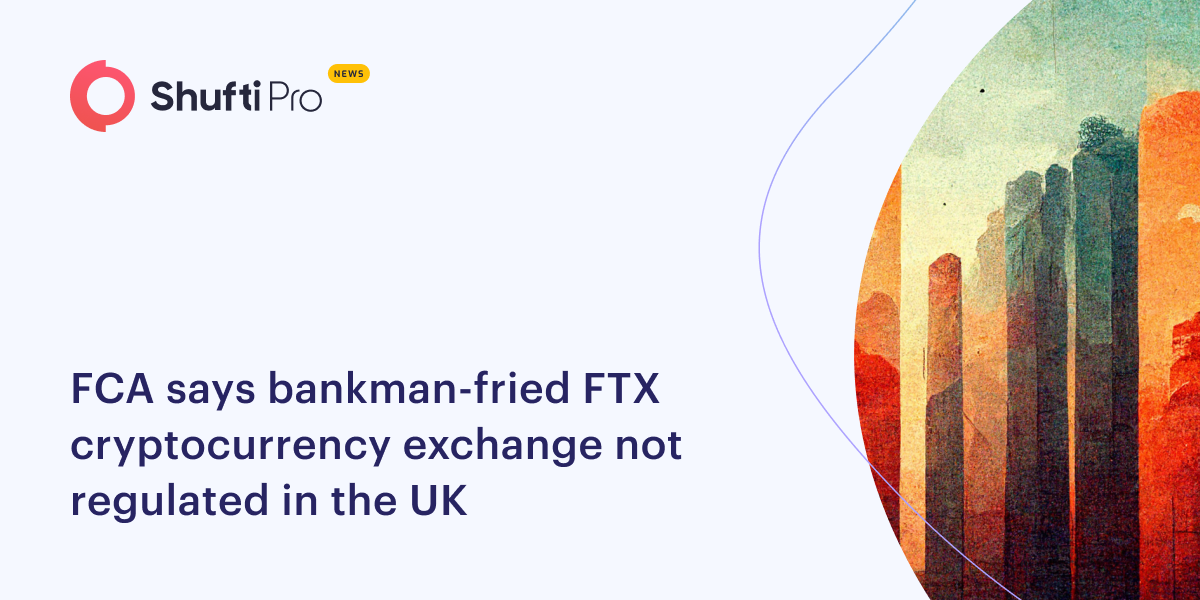 Explore More
Explore More
News
UAE to be Removed from FATF Gray List in 2024
The UAE’s Minister of State for Foreign Trade and chairman of the Emirates Bullion Committee hope...
 Explore More
Explore More
News
US Senator Joe Manchin Introduces Digital Asset Anti-Money Laundering Act to Curb Unauthorised Crypto Flow
US Senator Joe Manchin, along with Senators Roger Marshall, Lindsy Graham, and Elizabeth Warren, ...
 Explore More
Explore More
News
European Commission Removes Morocco From High-Risk Money Laundering Watchlist
On Wednesday, the European Commission disclosed that Morocco was no longer listed on its high-ris...
 Explore More
Explore More
News
BitMEX Founders Admit Violating Anti-Money Laundering Regulations
Two of the co-founders of crypto exchange BitMEX Arthur Hayes and Benjamin Delo have pleaded guil...
 Explore More
Explore More
News
Jamaica Plans Digital Marketplace to Trigger CBDC Adoption
Jamaica Observer reported that the CBDC project would improve performance metrics related to JAM-...
 Explore More
Explore More
News
Data Breach Exposes 515,000 IDs, More Cases of Synthetic ID Fraud to be Expected?
Hackers broke into the servers at the International Committee of the Red Cross and accessed perso...
 Explore More
Explore More
News
FATF Discloses Outcomes of October Plenary Meeting
The international regulatory authority, Financial Action Task Force (FATF), concluded its fourth ...
 Explore More
Explore More
News
Atomic Wallet Hack Results in $35 Million Loss as Investigation Continues
Atomic Wallet users have reported losing millions of dollars worth of cryptocurrency. It was anno...
 Explore More
Explore More
News
Bermuda Monetary Authority Tightens AML Control as Threat of Money Laundering Increases
Bermuda Island was rated high in the 2020 Money Laundering and Terrorist Financing Risk Assessmen...
 Explore More
Explore More
News
FINTRAC Issues Alert on Money Laundering from Illegal Wildlife Trade
FINTRAC, in collaboration with the Project Anton team, issues an alert on money laundering procee...
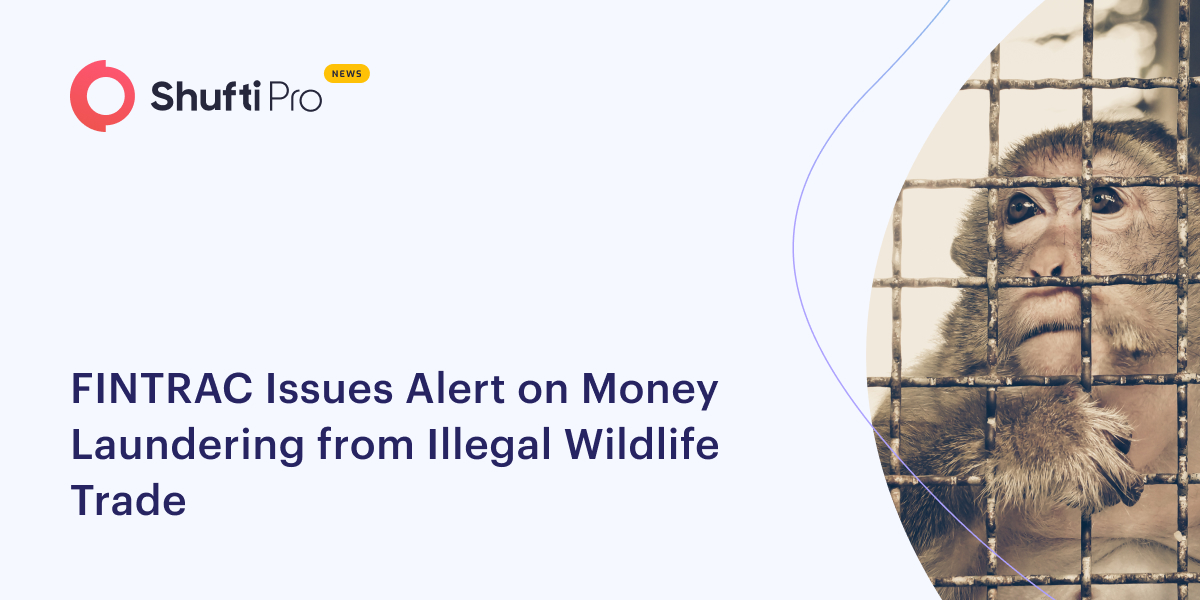 Explore More
Explore More
News
The UK plans to levy on banks to prevent money laundering
According to Reuters, Britain plans to announce a new levy on banks and other financial instituti...
 Explore More
Explore More
News
Governor Bank of France to Propose Licencing for Crypto Firms
François Villeroy de Galhau, the Governor Bank of France, has passed more stringent regulatory pr...
 Explore More
Explore More
News
EU Money Laundering Overhaul Should Include NFT Platforms, Lawmakers Say
The two crypto legislation adopted last week did not include unhosted wallets and decentralised f...
 Explore More
Explore More
News
UAE Banks Asked to Strengthen their AML/CFT Measures
UAE financial institutions and the banks are required to prioritize eliminating money laundering ...
 Explore More
Explore More
News
United Kingdom watchdog puts pressure on Deutsche bank
According to the Financial Times, the United Kingdom financial regulator has censured the Deutsch...
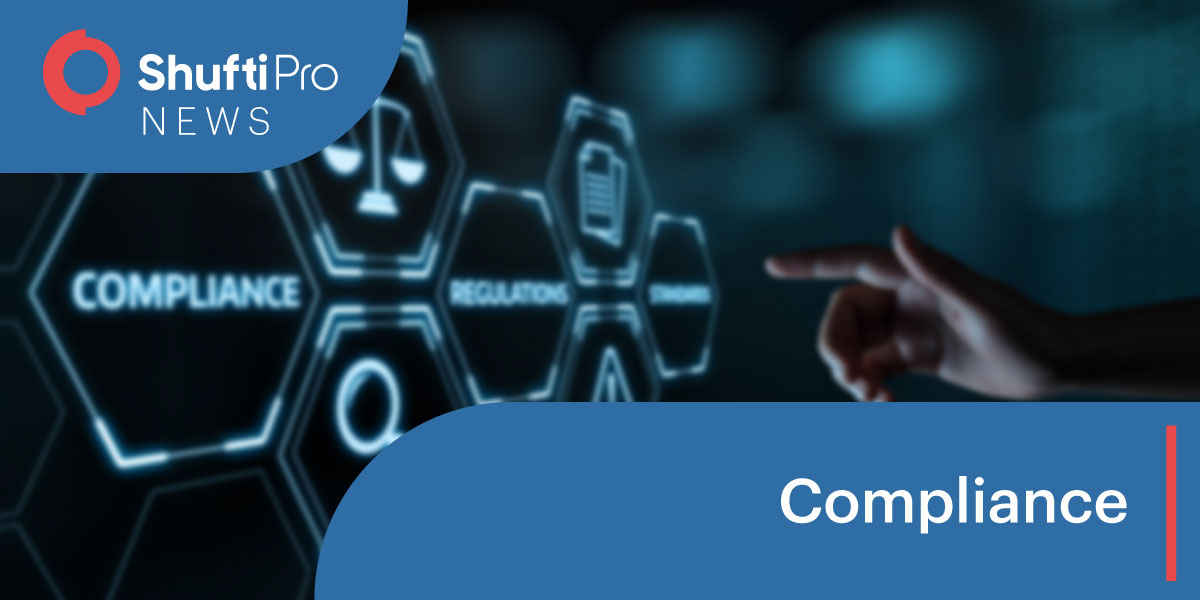 Explore More
Explore More
News
New York State Department Fines Robinhood $30m for Inadequate AML Compliance Measures
New York’s top financial regulator has fined Robinhood $30 million for failures and shortcomings ...
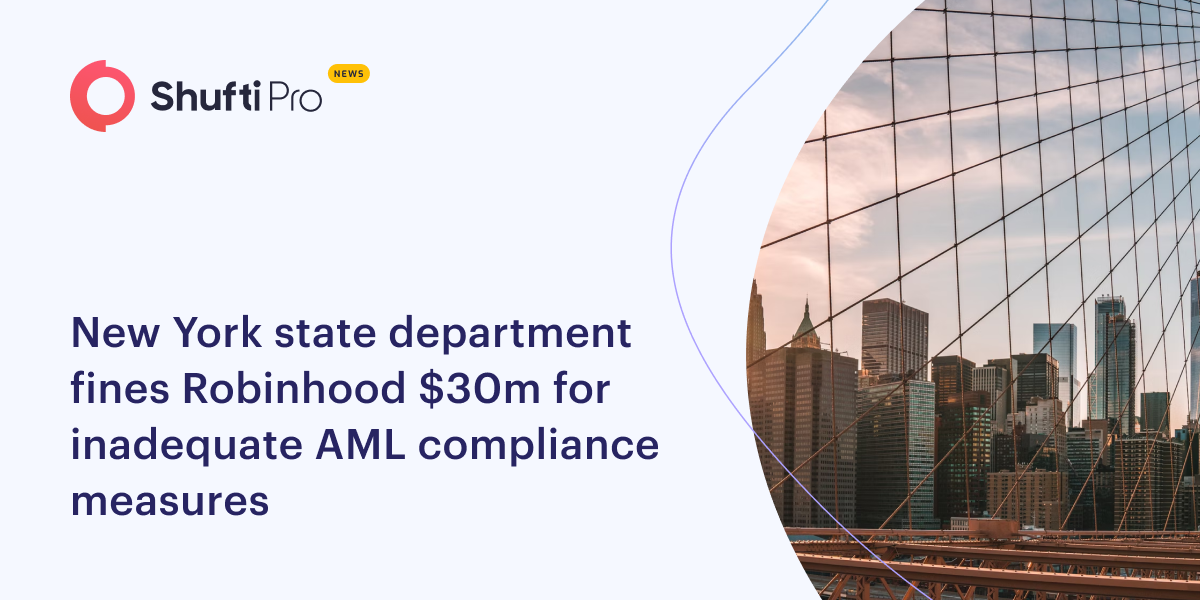 Explore More
Explore More
News
Phishing Scams Spike As Holiday Season 2021 Approaches
64% of the top courier companies have insufficient protection against phishing scams and other fr...
 Explore More
Explore More
News
The UK’s Joint Money Laundering Steering Group Amends Crypto Asset Travel Rule
The UK’s Joint Money Laundering Steering Group (JMLSG) amended the Money laundering and Terrorist...
 Explore More
Explore More
News
Star Casino Faces Class Action for Anti-Money Laundering Failures
The Star casino has been hit with a shareholder class action for its alleged non-compliance with ...
 Explore More
Explore More
News
FIAU Slaps Triton Capital Markets Limited with €227,000 Fine for AML/CTF Breaches
The Financial Services Analysis Unit (FIAU) FIAU has fined Triton Capital Markets Limited €227,0...
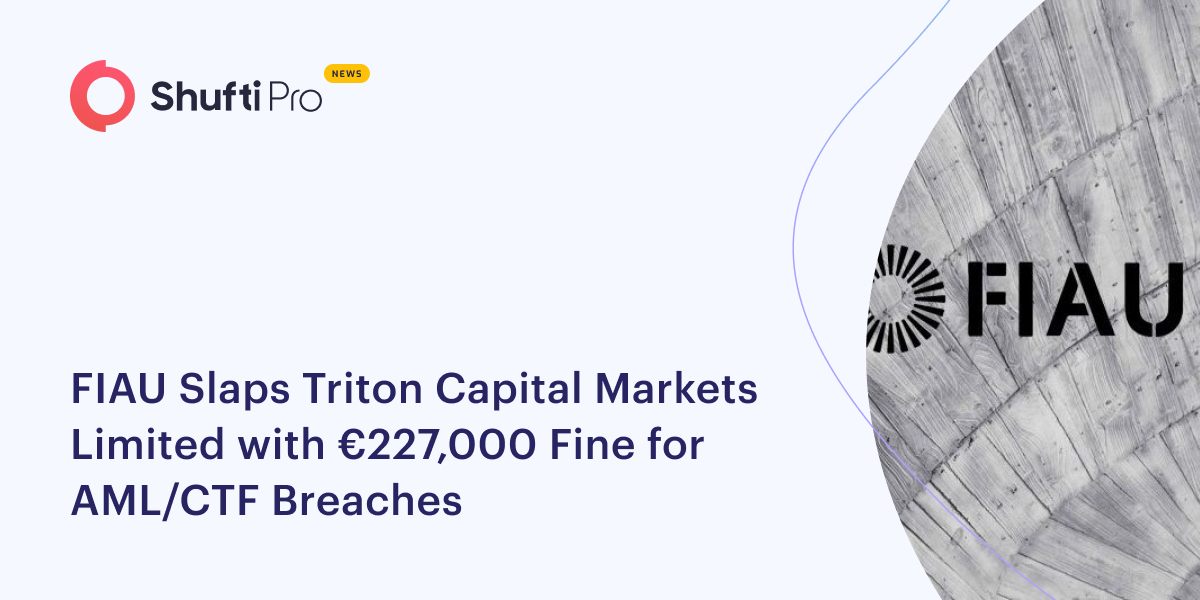 Explore More
Explore More
News
Philippines anti-money laundering council demands strict POGO regulations
The Philippines Anti-Money Laundering Council (AMLC) has advised of an “increasing level of threa...
 Explore More
Explore More
News
IRS Highlights Potential Risk of Fraud in NFTs and Cryptocurrencies
IRS highlights Non-Fungible Token (NFTs) and crypto as the potential risk of financial crimes, in...
 Explore More
Explore More
News
South Africa Introduces Biometric Child Registration To Stop ID Theft
The Department of Home Affairs (DHA) in South Africa recently introduced a new method of biometri...
 Explore More
Explore More
News
KYC/AML and Sanctions fines reach $5.6 billion mid-year for global financial institutions
The leading provider of digital transformation and client lifecycle management (CLM) solution, Fe...
 Explore More
Explore More
News
FMA Sues Tiger Brokers for AML/CTF Breaches
The Financial Markets Authority (FMA) has filed court proceedings against Tiger Brokers for alleg...
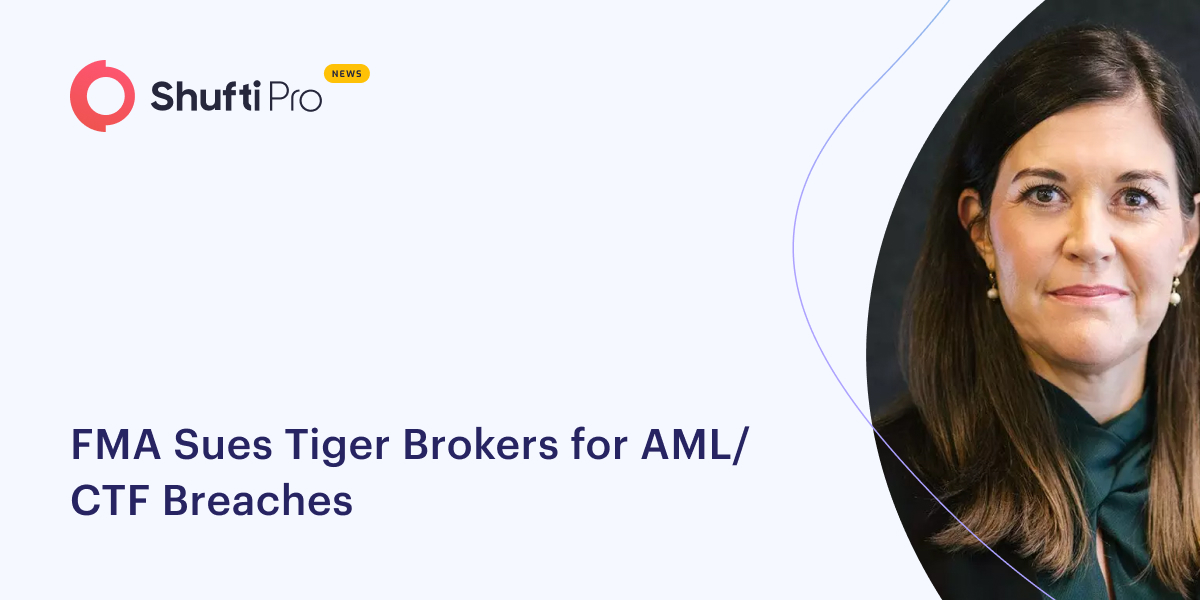 Explore More
Explore More
News
Shufti Relocates its London Office to Facilitate the Company Growth
March 2021, Shufti is pleased to announce the relocation of its London office to a larger and...
 Explore More
Explore More
News
Australia’s Money Laundering Failures Increase Risk of Russia Sanctions
Australia is facing embarrassment on the possibility of being placed on the FATF’s “grey list” fo...
 Explore More
Explore More
News
FinCEN Calls in Bankers to Assess AML/CFT Risks in DeFi
The Financial Crimes Enforcement Network (FinCEN) is focusing on DeFi oversight as government bod...
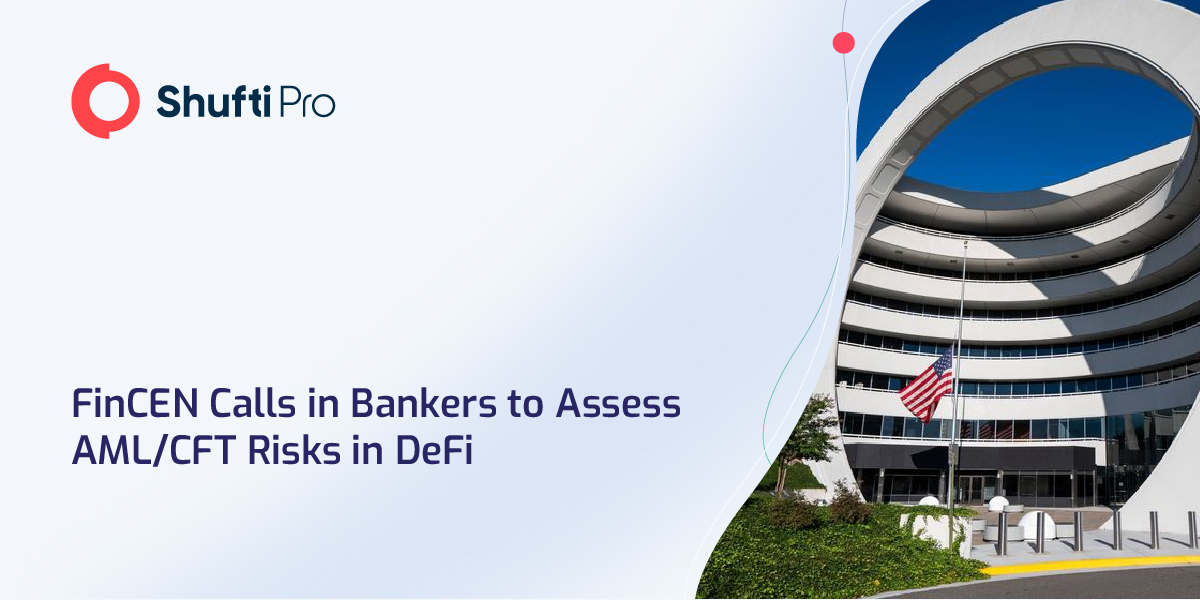 Explore More
Explore More
News
U.S. Treasury Identifies Emerging Money Laundering Risks and Vulnerabilities
The US Department of the Treasury recently issued its National Risk Assessment for Money Launderi...
 Explore More
Explore More
News
Australian Senate to Examine the Scope & Impact of AML/CFT on DNFBPs
The Australian Senate’s inquiry will be examining the impact of bringing DNFBPs under the AML/CFT...
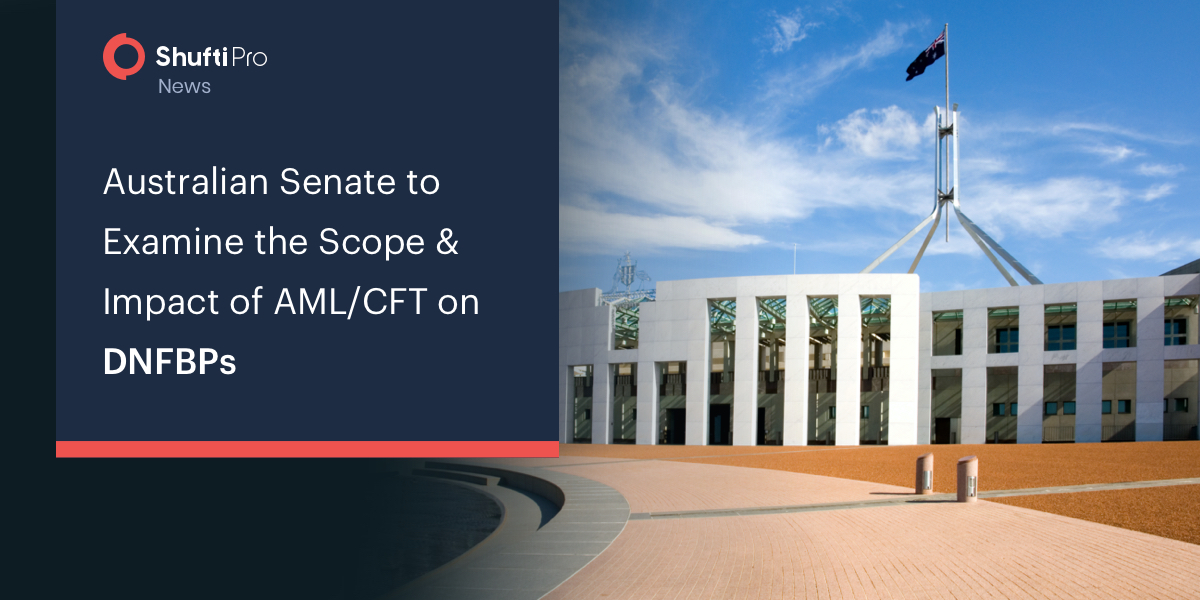 Explore More
Explore More
News
FMA Blacklists Krypto Security, Bay Exchange, and CTRL Investments Limited
New Zealand’s FMA has warned investors against services and products being offered by unauthorize...
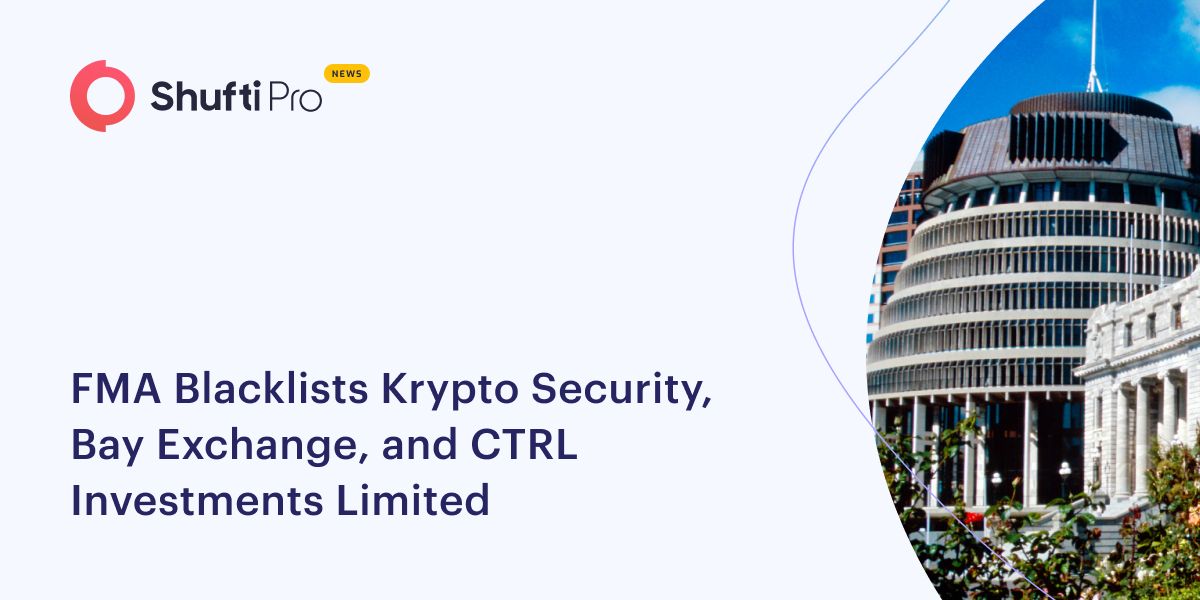 Explore More
Explore More
News
DC lawyers can now accept crypto for legal fees
According to a report by Bloomberg Law, cryptocurrency can now be used to pay for legal services ...
 Explore More
Explore More
News
Phillippines Added to FATF Gray List Again for Inadequate AML Casino Measures
The Philippine financial system did not comply with international Financial Action Task Force (FA...
 Explore More
Explore More
News
Social Media Firms May Face Parallel Regulation – Says Data Protection Authority
Social media platforms approached the I&B ministry citing apprehension that they may face par...
 Explore More
Explore More
News
Philippine Banks Struggle to Comply with AML Regulations
Philippian banks and financial institutions are struggling with compliances regarding the anti-mo...
 Explore More
Explore More
News
Australia’s Money Laundering Failures Increase Risk of Russia Sanctions
Australia is facing embarrassment on the possibility of being placed on the FATF’s “grey list” fo...
 Explore More
Explore More
News
Interpol Calls for Global Action to Prevent “Ransomware Pandemic”
Interpol has called for united global action to be implemented against ransomware attacks, follow...
 Explore More
Explore More
News
Bill to Combat Money Laundering Makes Its Way Through The Senate
The US House of Representatives passed the Corporate Transparency Act of 2019 (HR 2513) on Octobe...
 Explore More
Explore More
News
Danske Bank Expecting Huge Profit Rebound as Money Laundering Case Ends
Danske Bank expects a massive rebound in earnings this year, 2023, after the closure of the money...
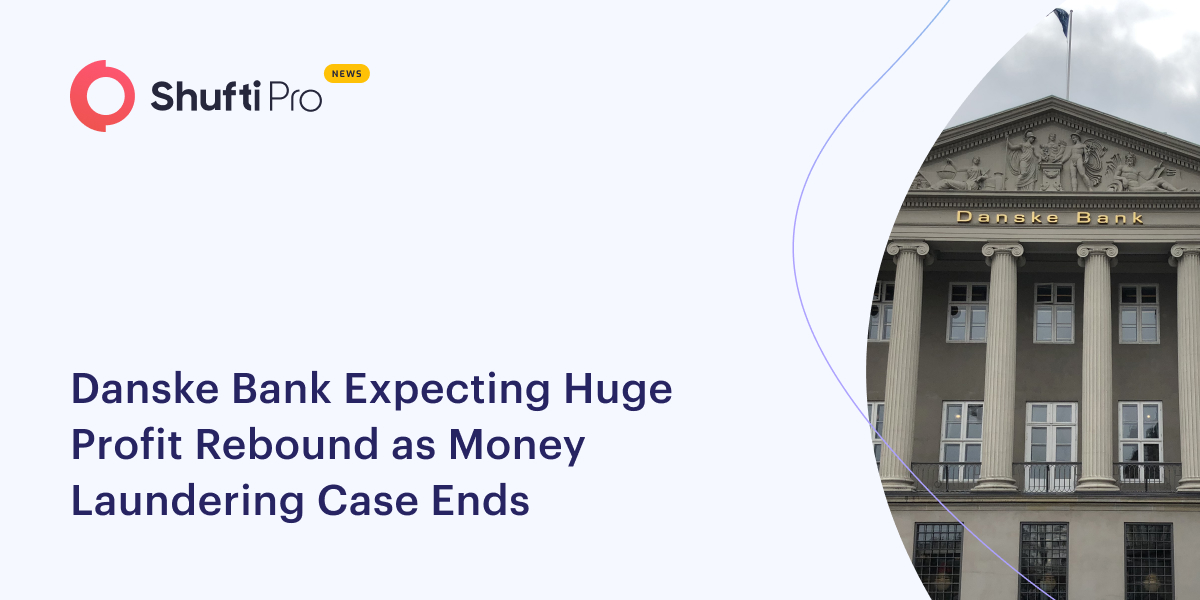 Explore More
Explore More
News
Interpol Operation Intercepts Financial Cybercrime Worth $83 Million
Due to an exponential rise in online financial crimes in the Asia Pacific region, an INTERPOL-coo...
 Explore More
Explore More
News
B.C. Real Estate Company Fined $230K for Multiple AML Violations
Nu Stream Realty Inc. has been fined $230,423 for failure to comply with federal Anti-Money Laund...
 Explore More
Explore More
News
Estonian Government to Strengthen AML Framework to Lift Crypto Ban
The Estonian Finance Ministry drafted AML amendments that will affect virtual asset service provi...
 Explore More
Explore More
News
AUSTRAC to Audit Three Bell Financial Group Entities to Evaluate AML/CFT Compliance
AUSTRAC has called for the audit of three entities under the Bell Financial Group, including Bell...
 Explore More
Explore More
News
UK MPs Call for Improved Crypto Regulations to Prevent Losses
Ministers of the UK Parliament are calling for more rigid cryptocurrency regulations from the ASA...
 Explore More
Explore More
News
UK to End “Golden Visa” Regime to Tackle Money Laundering
The UK is looking to scrap its so-called “Golden Visa” regime in a short period as Russian action...
 Explore More
Explore More
News
South Korea Extends AML Compliance Deadline for Crypto Sector
The deadline has been extended to ensure regulators are able to process all the applications subm...
 Explore More
Explore More
News
CCPA in effect – Mozilla firefox will let users delete their collected data
The California Consumer Privacy Act came into effect on Wednesday, Jan 1. Being obliged by the ne...
 Explore More
Explore More
News
One-third of Finance Firms Have Accelerated Use of AI to Detect Money Laundering
Financial institutions are heavily investing in Artificial Intelligence (AI) and Machine Learning...
 Explore More
Explore More
News
UK to Set up CBDC Taskforce to Analyze the Possibility of ‘Britcoin’
The Bank of England along with the British Government plans to set up a task force to create digi...
 Explore More
Explore More
News
EU Contemplates New Anti-Money Laundering Body in the Wake of Scandals
Brussels plans to pursue the strengthening of powers of the EU agencies to combat money launderin...
 Explore More
Explore More
News
FATF Urges Japan to Implement Stronger AML Measures
The FATF mutual evaluation report on Japan proposes the formation of a joint-agency body to enhan...
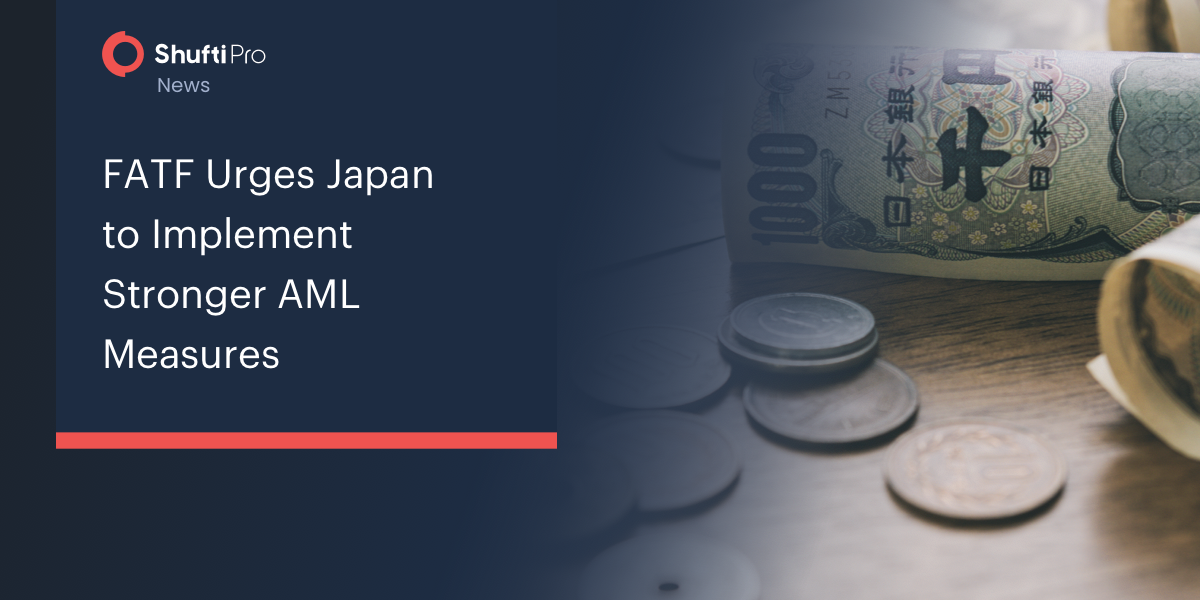 Explore More
Explore More











































































